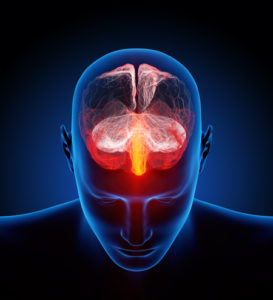What is SUNCT Syndrome?
Symptoms, Diagnosis, and Treatment
Symptoms, Diagnosis, and Treatment
If you have a headache that often feels like a burst of pain just behind the eye or the temple and occurs multiple times a day, you may have SUNCT Syndrome. While this condition is rare, it can often be misdiagnosed as another form of headache or trigeminal neuralgia.
SUNCT (Short-lasting Unilateral Neuralgiform Headache Attacks with Conjunctival Injection and Tearing) is considered to be a rare primary headache syndrome that is classified as being one of the trigeminal autonomic headache syndromes along with cluster headaches and paroxysmal hemicranias.

While symptoms can vary, people suffering from SUNCT Syndrome report:
Throbbing, burning, or piercing pain
Usually one-sided surrounding eye or extending into temple
Quick, burst-like onset
Episodic and generally following a pattern
Episodes are short (seconds to minutes)
Attacks typically occur during the daytime
Accompanying symptoms may include:
Watering or bloodshot eyes
Forehead or facial flushing
Nasal congestion
Forehead or facial sweating
Swelling of the eyelid
A rise in systolic blood pressure
Dr. de Lotbinière will look at your medical history, previous diagnoses, and your responses to past treatments. There are risk factors that can also aid in diagnosis; the syndrome is more common in men and symptoms tend to start after the age of fifty.
Typically, this syndrome is also characterized by its unresponsiveness to traditional methods of treating short-lasting headaches. When medications such as anticonvulsants fail, procedures such as a trigeminal microvascular decompression, occipital nerve stimulation or Gamma Knife radiosurgery can help. Dr. de Lotbinière will work with you to find the best treatment to help relieve your symptoms.
If you think you may be suffering from this painful condition, turn to an expert in neurologic disorders. Dr. Alain de Lotbinière has the expertise to get you the answers you need. Schedule a consultation today, either at his Connecticut or New York office.